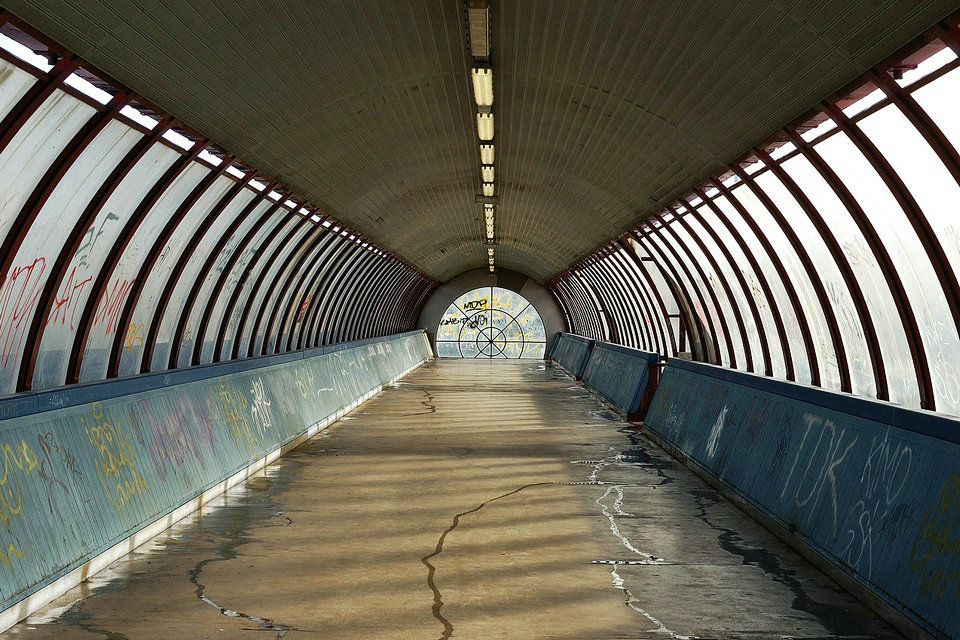Non-place or nonplace is a neologism coined by the French anthropologist Marc Augé to refer to anthropological spaces of transience where the human beings remain anonymous and that do not hold enough significance to be regarded as “places”. Examples of non-places would be motorways, hotel rooms, airports and shopping malls. The term was introduced by Marc Augé in his work Non-Places, introduction to an Anthropology of Supermodernity.
The perception of a space like a non-place, however, is strictly subjective: each of us in his or her own way can see the same place as a non-place, or as a crossroads of human relations. For instance, a shopping mall is not a non-place for a person who works there every day. The concept of non-place is opposed, according to Augé, to the notion of “anthropological place”. The place offers people a space that empowers their identity, where they can meet other people with whom they share social references. The non-places, on the contrary, are not meeting spaces and do not build common references to a group. Finally, a non-place is a place we do not live in, in which the individual remains anonymous and lonely. Marc Augé however avoids, in his book, to make value judgments on non-places and looks at them from the perspective of an ethnologist who has a new field of studies to break. With regard to the classification of shopping malls as non places, more recently an Italian researcher from the University of Bergamo, Marco Lazzari, developed a survey on a large sample of adolescents, and showed that the mall is a place where teens do not meet by chance, nor with the sole purpose to buy something, but to socialize, meet friends and have fun. Whereas shopping malls are (at least in Italy) yet prejudicially regarded by adults as non-places, they seem to be natively concerned with the identity of the so-called digital natives.
Source From Wikipedia
